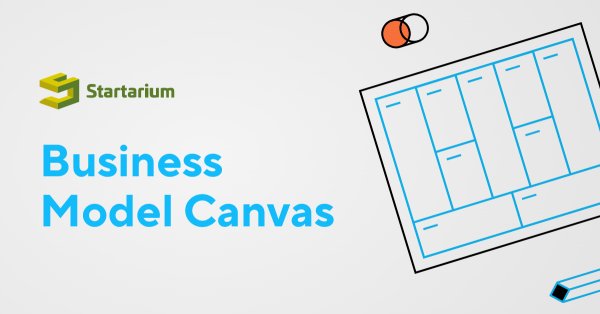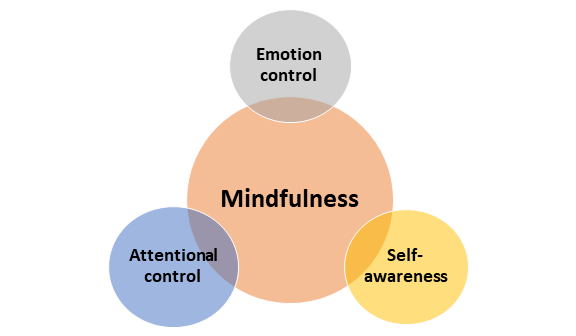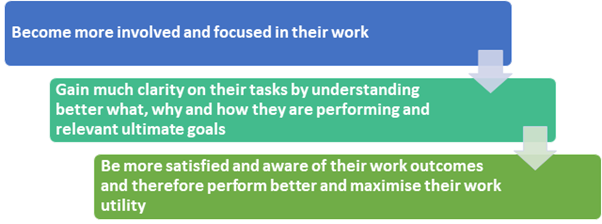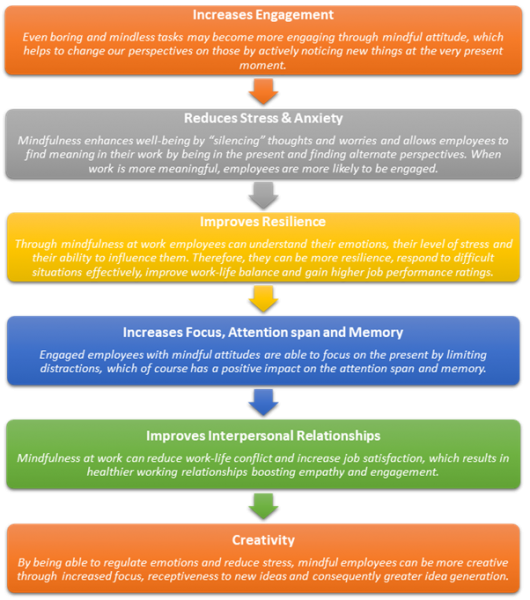A tool that is strictly related to work engagement generating positive emotions and happiness at work is mindfulness. This method that can amplify our ability to focus and therefore foster the state of flow.

Mindfulness has its roots in Eastern religions and traditions (Hinduism and Buddhism) and through yoga practices has become popular in the Western world as a sort of meditation state where one’s mind is fully concentrated and aware of the present time, of where you are, of what you are doing without getting distracted by what is around you or being wondering into the past or the future.
For this reason, it is usually stated that mindfulness implies the ability to pay attention to the present non-judgementally, which means that one is able to be open to any thoughts coming up in his/her mind, as they were birds flying over our heads that we simply watch without feeling the need to analyse their intricate patterns. This way we become more naturally curious, more sensitive to our and others’ wellbeing, less stressed out and more aware of our positive attitude towards everyday pressures.
Just because mindfulness helps us to focus our attention on what we need and to see the flaws in our thinking, it helps reaching the flow and therefore enhancing our engagement at work.
In other words, mindfulness is all about self-awareness of thoughts, emotional balance, effective management of relationships and therefore improved social awareness.
According to Pearson and colleagues (2015 -http://www.awakeatwork.net/sites/default/files/Tang_1426855548_1%20-final.pdf), there are 3 main areas or skills that are benefited through mindfulness:
- Emotion regulation is strictly related to the positive way we respond to emotion and therefore to our well-being
- Attentional control is strictly related to the ability to focus on an object, a feeling or an experience and remain connected with it and therefore to our being goal-directed towards a specific professional or academic achievement for instance
- Self-awareness is strictly related stress management in general and therefore to more empathic attitudes.
In conclusion, it is evident that mindfulness is a key tool to improve engagement at work since employees as well as employers can:
Based on what stated, mindfulness can generate not only physiological benefits but also positive impact on the well-being, relationships and creativity in the workplace by:
- Helping to develop positive strategies to deal with highly stressful environments and work pressures
- Dealing better with complexity
- Enhancing self-regulation of thoughts, emotions and behaviours
- Improving resilience when facing of challenges and therefore task performance
In particular, mindfulness:


























